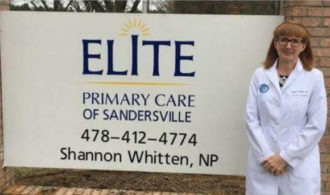By Andy Miller and Judi Kanne
Shannon Whitten has worked as a rural nurse practitioner for 20 years in Sandersville, in eastern Georgia.
She’s an advanced practice registered nurse, also known as an APRN. Some of her colleagues at the same level have been recruited by New York to help out during the city’s COVID-19 crisis, Whitten says.
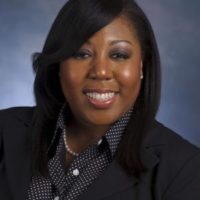
She notes that APRNs can work in the Big Apple without supervision by a doctor. But they cannot do so here.
“Georgia’s APRN practice laws remain some of the nation’s most restrictive,’’ Whitten says. “Georgia law mandates that APRNs have a protocol agreement with a supervising physician and extra additional supervision requirements.”
Georgia’s APRNs have asked Gov. Brian Kemp to temporarily suspend the state’s restrictions on them during the COVID-19 pandemic.
“As businesses begin to reopen across Georgia, it is likely we will see an increase in diagnosed COVID-19 cases,” says Michelle Nelson, a Georgia State University nursing professor and co-director of the Georgia Coalition of Advanced Practice Registered Nurses.
“We are also looking ahead to this winter, when CDC Director Robert Redfield says we will probably see an even greater strain on our health care system as flu and COVID-19 cases together could overwhelm our hospitals,’’ Nelson says. “The immediate and long-term need for highly trained nurse practitioners who can care for patients, order imaging tests and take some of the strain off doctors is crucial.’’
Kaiser Health News reports that five states have suspended their doctor supervision requirements during the pandemic, and an additional 12 have modified them to give providers with extra training more independence, according to the American Association of Nurse Practitioners.

Across the nation, 22 states allow APRNs to practice independently, without a physician’s supervision, at all times.
Physician assistants (PAs) around the country have also requested a suspension of restrictions on their practices amid COVID-19 crisis, and a few states have granted one.
Doctors reluctant to back changes
An advanced practice registered nurse is a nurse who has obtained at least a master’s degree in nursing. There are four categories of APRNs: nurse practitioners; nurse anesthetists; nurse midwives: and clinical nurse specialists.
A physician assistant is a health care professional who has the training to perform many duties that doctors routinely handle. PAs must be licensed, and each must work under the direction of a physician.
Bills seeking to broaden the ‘‘scope of practice’’ of mid-level medical providers (non-physicians with advanced training) are introduced annually in the Georgia General Assembly. Proponents of these bills say the changes would increase the public’s access to medical care.
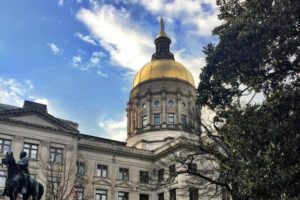
But these proposals have not been successful, and they typically meet tough resistance from medical provider groups seeking to defend the status quo.
U.S. Secretary of Health and Human Services Alex Azar wrote last month to governors requesting that they “extend the capacity of the health care workforce to address the pandemic.” Azar asked governors for help to “ensure health professionals maximize their scopes of practice and are able to travel across state lines or provide telemedicine to communities where they are needed most.”
The Medical Association of Georgia, which is made up of physicians, says it’s opposed to lifting restrictions on APRNs.
“[We] do not believe that circumstances warrant expanding APRNs’ scope of practice – keeping in mind that the Georgia Composite Medical Board can expedite protocol agreements as it deems appropriate,” says Dr. Andrew Reisman, president of the Medical Association of Georgia. “MAG’s members monitor the state’s health care system staffing needs on an ongoing basis.”
Many physicians, meanwhile, are seeing a decrease in patients during the pandemic, GHN recently reported. The COVID-19 crisis has led to much lower patient volumes for physicians across Georgia. A lot of people have stopped going to the doctor.
And that revenue drain may endanger some rural medical practices, which are already few and far between in many counties.
California also has supervision requirements for APRNs, and the California Medical Association has argued that the state already has enough providers to address the pandemic because many doctors have been laying off staff and closing their offices.
But Nelson says if the restrictions were lifted, APRNs could move to some of Georgia’s hardest-hit areas, where many people now have limited access to care and are medically vulnerable.
“We could set up pop-up clinics to offer primary care and treat people with a number of health concerns such as diabetes, cardiovascular issues, respiratory illness, etc., as well as conduct COVID-19 testing, ‘’ she says.
Currently, APRNs are unable to work independently in any Georgia community where there is no doctor to supervise them, Nelson says. And since many communities have no hospital or doctors, this leaves an untold number of Georgians without ready access to high-quality medical care.
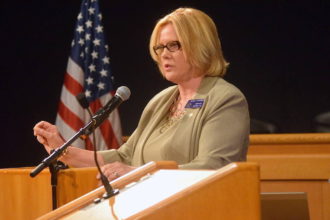
State Sen. Renee Unterman, a Gwinnett County Republican who’s running for U.S. Congress, says lifting the restrictions would allow APRNs to practice in nursing homes, where she says it’s difficult to get a physician to work.
Unterman, a nurse herself, says nurses leave Georgia because they can’t practice to the full extent of their qualifications.
The push to lift barriers
Ten years ago, the Institute of Medicine’s report called for the removal of practice barriers — laws, regulations and policies — that prevent APRNs from providing the full scope of health care services they are educated and certified to provide.
Molly Bachtel, a family nurse practitioner, says APRNs working under federal regulations at VA hospitals and military bases in Georgia have full practice authority and do not have to be legally supervised by physicians.
She adds that no state that has provided full practice authority to APRNs has ever revoked it.
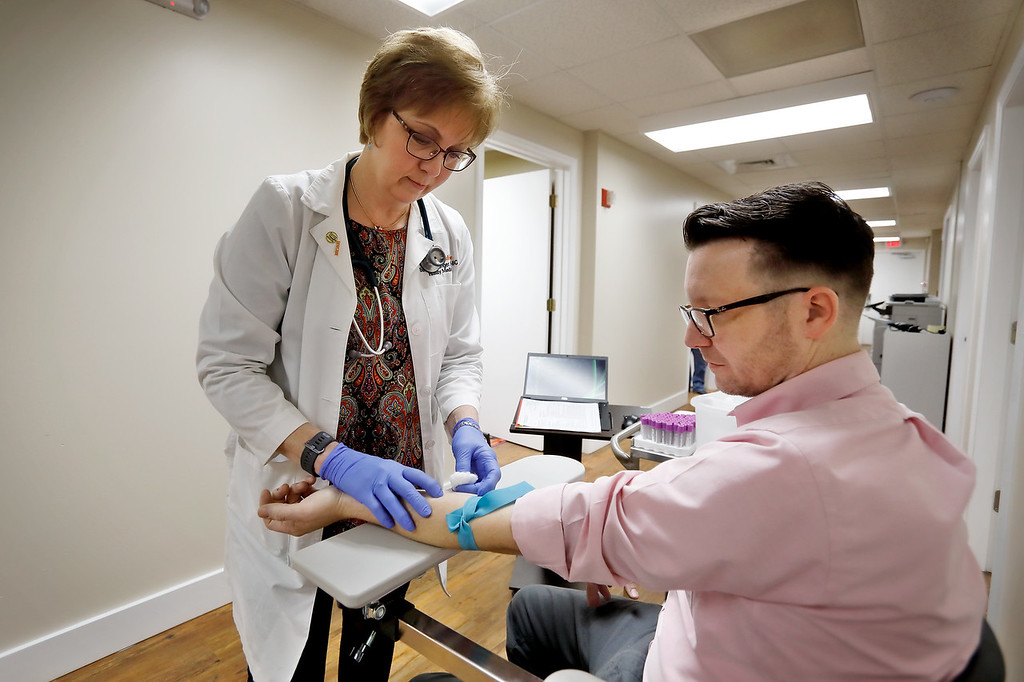
Shannon Whitten, the APRN in Sandersville, had to look for another doctor to supervise her after the previous one moved away. She found one, and he now supervises her work at a clinic.
“We are not trying to usurp power or supersede the scope of medicine, but we are requesting at least during crises that we be allowed to practice independently,’’ Whitten says.

